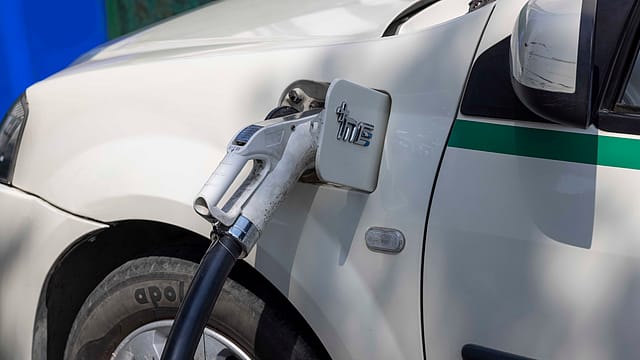India may need 13 lakh EV charging stations by 2030: CII
ADVERTISEMENT

India may need at least 13 lakh charging stations by 2030 to support aggressive electric vehicle (EV) uptake, according to a report released by the Confederation of Indian Industry (CII).
EVs saw exponential growth in 2022 with a threefold increase over the previous year. In a business-as-usual scenario of about 40% growth year-on-year, 2030 will see about 1.6 crore EVs being sold every year, the report says.
To cater to this growing demand and to achieve a 1:40 ratio of charging infra to EVs, India would need to install more than 4 lakh chargers annually with a total of 13.20 lakh chargers till 2030 across the country, the report says.
Charging infrastructure in India is still at a nascent stage. As of the beginning of 2023, India had around 5,300 public EV charging stations. With about 22 Lakh EVs on the road, the ratio of EVs to public chargers in India is about 1:400. This is far short of other countries including China and the U.S., that have seen higher adoption of EVs. As per the Global EV Outlook 2022 by International Energy Agency (IEA), the ratio of vehicles to public chargers in China is 7, and that in the U.S. is 20.
The establishment of public charging infrastructure is imperative to enhance consumer confidence in the transition to EVs, says the report.
"The Government of India has set the ball rolling on accelerated adoption of EVs, aiming to achieve sales penetration of 30% for private cars, 70% for commercial vehicles, and 80% for two and three-wheelers by 2030. The foundation for this will be laid by the creation of robust charging infrastructure," says Vipin Sondhi, chairperson, CII National Committee on Future Mobility 2022-23 and former MD & CEO, Ashok Leyland and JCB India.
"The sheer extent of charging infrastructure that will need to be set up in India provides the economies of scale needed to turn the country into a global manufacturing hub for charging stations, in turn leading to job creation and exports," Sondhi says, calling for a conducive policy environment, at the central, and in the states to enable Indian startups, MSMEs, and large companies to rapidly roll out charging infrastructure across the country.
Building a robust, safe, and reliable EV infrastructure is a capital-intensive business. It requires significant upfront costs including land, electricity connections, etc. as well as ongoing maintenance costs.
"There is high dependence on imports of parts of Electric Vehicles Supply Equipment (EVSE). The industry has the potential to become a major employment generator given the growth path for EVs and corresponding charging requirements. The anticipated demand both from domestic as well as global markets in the coming decade presents an opportunity for India to take the lead in becoming a global hub for EVSE and its supply chain," the report says.
Affluent countries where 4W vehicles dominate, and where large sections of the population live in homes that have access to dedicated parking space may require fewer public chargers as private chargers make up for the shortfall. However, in countries where 2W and 3W dominate, and where urban population density is high with lower access to dedicated parking, the dependence on public charging infrastructure is likely to be higher, the report says.
EV sales in India have seen exponential growth over the past few years, overshooting even optimistic forecasts of sales. EV sales are close to 5% of all auto sales in India across categories. While increasing choice is resulting in greater sales of EV personal 4W vehicles, most EV sales are led by the 2W category.